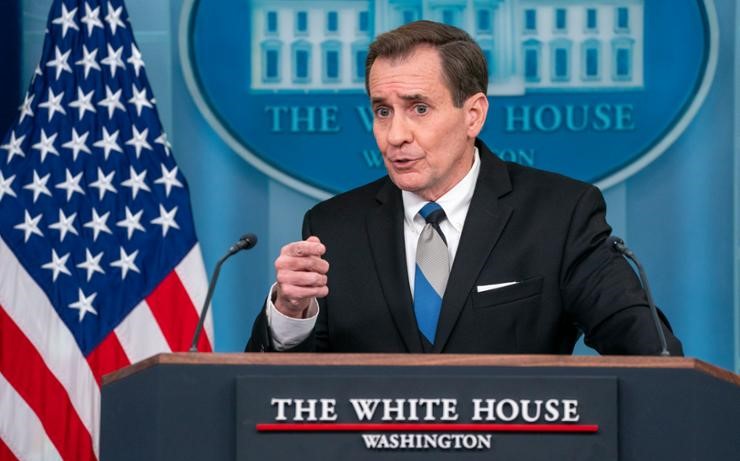WNAM MONITORING: The White House publicly confirmed on Thursday that Russia has obtained a “troubling” emerging anti-satellite weapon but said it cannot directly cause “physical destruction” on Earth.
White House national security spokesman John Kirby said U.S. intelligence officials have information that Russia has obtained the capability but that such a weapon is not currently operational. U.S. officials are analyzing the information they have on the emerging technology and have consulted with allies and partners on the matter.
“First this is not an active capability that’s been deployed and though Russia’s pursuit of this particular capability is troubling, there is no immediate threat to anyone’s safety,” Kirby said. “We’re not talking about a weapon that can be used to attack human beings or cause physical destruction here on Earth.’’
The White House confirmed its intelligence after a vague warning Wednesday from the Republican head of the House Intelligence Committee, Ohio Rep. Mike Turner, urged the Biden administration to declassify information about what he called a serious national security threat.
Kirby said that the process of reviewing and declassifying aspects of the Russian capability was underway when Turner “regrettably” released his statement.
“We have been very careful and deliberate about what we decide to declassify downgrade and share with the public,” he added.
Russia has downplayed the U.S. concern about the capability.
In Moscow, Kremlin spokesperson Dmitry Peskov described the claims about a new Russian military capability as a ruse intended to make the U.S. Congress support aid for Ukraine.
“It’s obvious that Washington is trying to force Congress to vote on the aid bill by hook or by crook,” Peskov said in remarks carried by Russian news agencies. “Let’s see what ruse the White House will use.”
Kirby said the capability is space based and would violate the international Outer Space Treaty, which more than 130 countries have signed onto, including Russia. He declined to comment on whether the weapon is nuclear capable. The treaty prohibits the deployment of “nuclear weapons or any other kinds of weapons of mass destruction” in orbit or “station weapons in outer space in any other manner.”
The White House said it would look to engage the Russians directly on the concerns. Even as the White House sought to assure Americans, Kirby acknowledged it was a serious matter.
“I don’t want to minimize the potential here for disruption,” Kirby said.
White House national security adviser Jake Sullivan briefed lawmakers Thursday on Capitol Hill on the Russian threat.
After the meeting, Turner said Sullivan spoke to lawmakers about the administration’s options in addressing the threat.
“I think the bottom line is that we all came away with a very strong impression that the administration is taking this very seriously and that the administration has a plan in place,” Turner said. “We look forward to supporting them as they go to implement it.”
Connecticut Rep. Jim Himes, the ranking Democrat on the House Intelligence Committee, called the threat “pretty standard stuff” in terms of the national security threats that the intelligence panel deals with.
“This is not a threat for today, tomorrow, next week or next month,” Himes said.
Himes said he respected Turner’s decision to warn Congress at large about the threat but had expressed concern in advance about taking it public on social media. “And my concern was specific that if we did that, we would be staring into a whole lot of cameras and microphones,” Himes told the reporters and camera crews outside the secure briefing room. “And here we are.”


